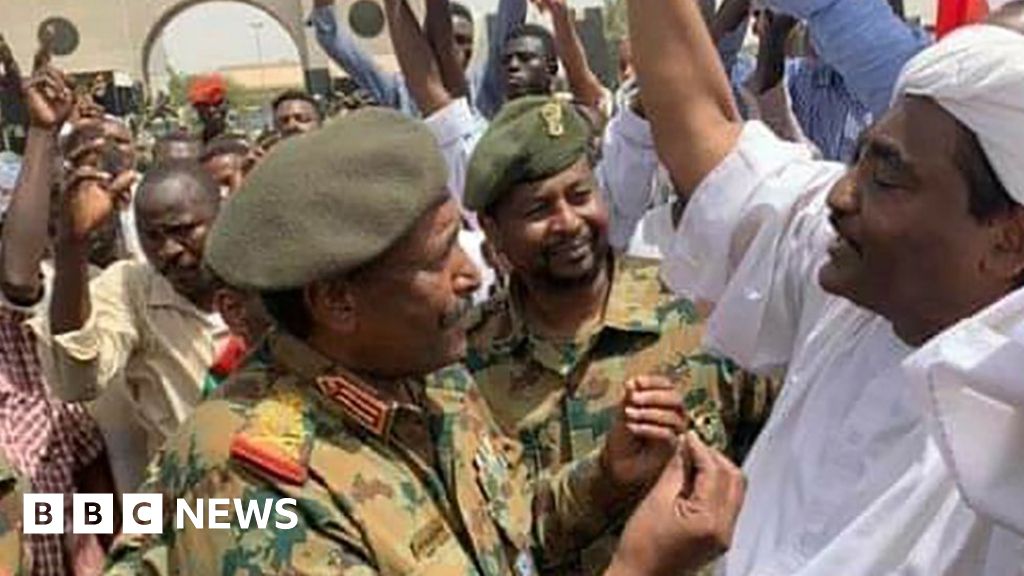
Leaders of the protests in the Sudanese capital Khartoum have called on supporters to stay in the streets two days after the military coup.
They are demanding an immediate move to civilian rule after the army ousted long-time leader Omar al-Bashir, putting him in custody.
The military wants to hold power for two years, followed by elections.
It replaced its own leader in an apparent concession to the protesters but the change did not sway them.
"We call on the armed forces to ensure the immediate transfer of power to a transitional civilian government," the Sudan Professionals Association (SPA), which has been spearheading the demonstrations, said on Facebook.
A growing economic crisis has gripped the country since the oil-rich southern part split away in 2011, and Thursday's coup followed months of unrest over the cost of living.
How did the latest drama unfold?
When Mr Bashir was removed, he was replaced by a military council led by Defence Minister Awad Ibn Auf.
But demonstrators camping out outside army headquarters in Khartoum refused to disperse, rejecting Mr Ibn Auf as an ally of Mr Bashir.
On Friday, the new leader announced he was resigning and being replaced by Lt-Gen Abdel Fattah Abdelrahman Burhan, who is seen as a less controversial figure.
But the move failed to satisfy protesters who have kept up their sit-in in the capital.
They called for the abolition of "arbitrary decisions by leaders that do not represent the people" and the detention of "all symbols of the former regime who were involved in crimes against the people".
"Until these demands are fully met, we must continue with our sit-in at the General Command of the Armed Forces," the SPA said.
At least 16 people have been killed by stray bullets at the protests since Thursday, police say.
What will happen to Bashir?
He has been indicted by the International Criminal Court on charges of war crimes and crimes against humanity over the conflict in Sudan's Darfur region earlier this century.
However, the military council has said it will not extradite Mr Bashir, who denies the charges, although he may be put on trial in Sudan.
Mr Ibn Auf was head of military intelligence during the Darfur conflict and the US imposed sanctions on him in 2007.
How big are these events?
This is an exciting moment, writes the BBC's Africa editor, Fergal Keane. It is happening in Sudan but the significance of these forces working peacefully for change is universal.
It may be very precarious but it is also full of possibility, he says.
One of the defining images of the peaceful protests in Khartoum is that of demonstrator Alaa Salah leading a crowd in anti-government chants.
The image has been taken up by artists in turn, as French broadcaster Franceinfo reports.
Have you been taking part in protests? You can share your experiences by emailing haveyoursay@bbc.co.uk
Please include a contact number if you are willing to speak to a BBC journalist. You can also contact us in the following ways:
- WhatsApp: +44 7555 173285
- Tweet: @BBC_HaveYourSay
- Send pictures/video to yourpics@bbc.co.uk
- Upload your pictures / video here
- Text an SMS or MMS to 61124 or +44 7624 800 100
- Please read our terms & conditions and privacy policy
https://www.bbc.com/news/world-africa-47918736
2019-04-13 10:12:15Z
52780266841167
Tidak ada komentar:
Posting Komentar